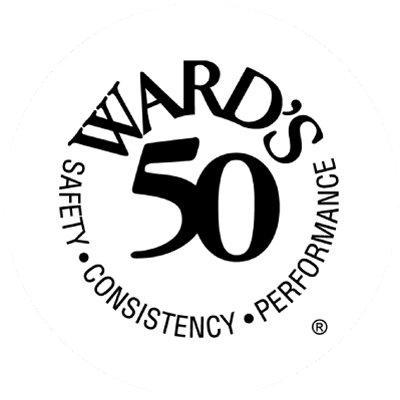Prepare your business for hurricane season.
Hurricane season begins on June 1st in the Atlantic and lasts until November 30th. If your business is in a hurricane-prone region, it’s never too early to take steps to prepare!
How to Prepare
From employee and community safety to business continuity plans, there are many things to consider in the event of a hurricane. We’ve created a checklist of considerations for you to ensure your business, your customers, your employees, and your community stay safe in the months ahead!
Review your insurance policies and ensure you have all the coverage you need.
Your insurance is there to provide you with peace of mind and to help you prepare and recover from disasters or other unplanned events. Note that while “hurricane insurance” doesn’t exist, there are insurance options available to protect your business and recover from hurricane damages.
Before hurricane season begins (June 1st!), contact your insurance agent. Review the details of your policy together and ask any questions you may have about your coverage. Remember that your insurance agent is an excellent resource and happy to help!
Create or review your in-case-of-emergency plans.
Benjamin Franklin, America’s first insurer, once said, “If you fail to plan, you are planning to fail.”
If your business does not have a formal, written disaster recovery plan, now is the time to prepare one. Your plan should include information that will help curtail losses in a disaster. It should detail where your business will go if forced to temporarily relocate and how IT infrastructure and secure business information will be protected.
Your business continuity and recovery plan should be thorough to help your business address needs, identify and address any weaknesses in disaster preparedness, and ultimately, resume operations as soon as possible.
Share your plan with your employees. If possible, the Insurance Information Institute suggests leading drills for your business to “assess and improve response” prior to disaster.
Read more about disaster recovery plans: Have You Reviewed Your In-Case-of-Emergency Plan?
Gather contact information for employees, customers, and other stakeholders.
If you don’t already have contact information for your employees, customers, and other stakeholders, start compiling this information. Amid a potential disaster, you’ll want to ensure you maintain clear communication with everyone affected by the hurricane and the disruption of business.
When a hurricane watch* is issued, check in on your employees, vendors, and other stakeholders in your community to make sure everyone is prepared and safe. Do they have the supplies they need? Are their homes ready? Do they know where to seek shelter if they need to evacuate? The CDC provides guidance on what steps individuals can take to prepare for a hurricane.
Consider sharing reliable, helpful information such as these resources with your contacts:
- For information on how families can plan for hurricane season, what to do if they need to evacuate, and more, visit https://www.cdc.gov/disasters/hurricanes/before.html
- Ready.gov has a checklist of supplies to include in a disaster kit, and they’ve even included the information in a printable, PDF version: https://www.ready.gov/kit
- FEMA has an entire guide to what to do before, during, and after a hurricane, available as a printable PDF for quick access: https://www.ready.gov/sites/default/files/2020-03/fema_how-to-prepare-for-hurricane.pdf
You should also use this contact information to share clear expectations for your business. If a hurricane watch is issued, will business continue as usual? Will hours be shortened? If your area needs to evacuate, will business operate from a temporary location? Communicate your plans—and update when plans may change – with your employees, vendors, and community.
Protect your building and other assets.
Hurricanes can cause extensive damage, from high winds to flooding. To protect the physical location of your business, FEMA recommends taking measures such as:
- Clearing gutters and drains
- Bringing loose objects such as outdoor furniture, exterior décor or signage, garbage cans, and any other lightweight outdoor objects inside
- Reinforce windows, doors, walls, and roofs to reduce wind damage
- Waterproofing the building’s basement
- Gathering materials such as sandbags, plastic sheeting, and plywood.
For a more extensive list of ways to mitigate flood or wind damage from a hurricane, visit FEMA’s How to Prepare for a Hurricane resource, available here: https://www.ready.gov/sites/default/files/2020-03/fema_how-to-prepare-for-hurricane.pdf
Additionally, this blog post shares resources from sources such as the Federal Alliance for Safe Homes and Ready.gov, many of which are applicable to a brick-and-mortar store, too.
Read more about Protecting Your Property from Hurricane Damage.
Help your community prepare.
Remember that your business is part of a community! Consider donating time or resources to the community around your business. Ensure that neighbors are ready, especially those who may live alone or require additional accommodations to evacuate. Share information from reliable sources on hurricane safety and preparedness on your business social media pages.
Maybe your business can organize a day of volunteering to help the community – sharing information, gathering or donating supplies, or helping neighbors secure their homes!
Read more about How Your Business Can Help the Community Prepare for a hurricane.
*A hurricane watch signifies that hurricane conditions are possible in or near a specified area within 48 hours, and a hurricane warning indicates that hurricane conditions are expected within 36 hours. For more information on hurricane watches and hurricane warnings, visit https://oceanservice.noaa.gov/facts/watch-warning.html.
This blog was originally published by Merchants on May 11, 2022. It was last updated on May 7, 2024.



